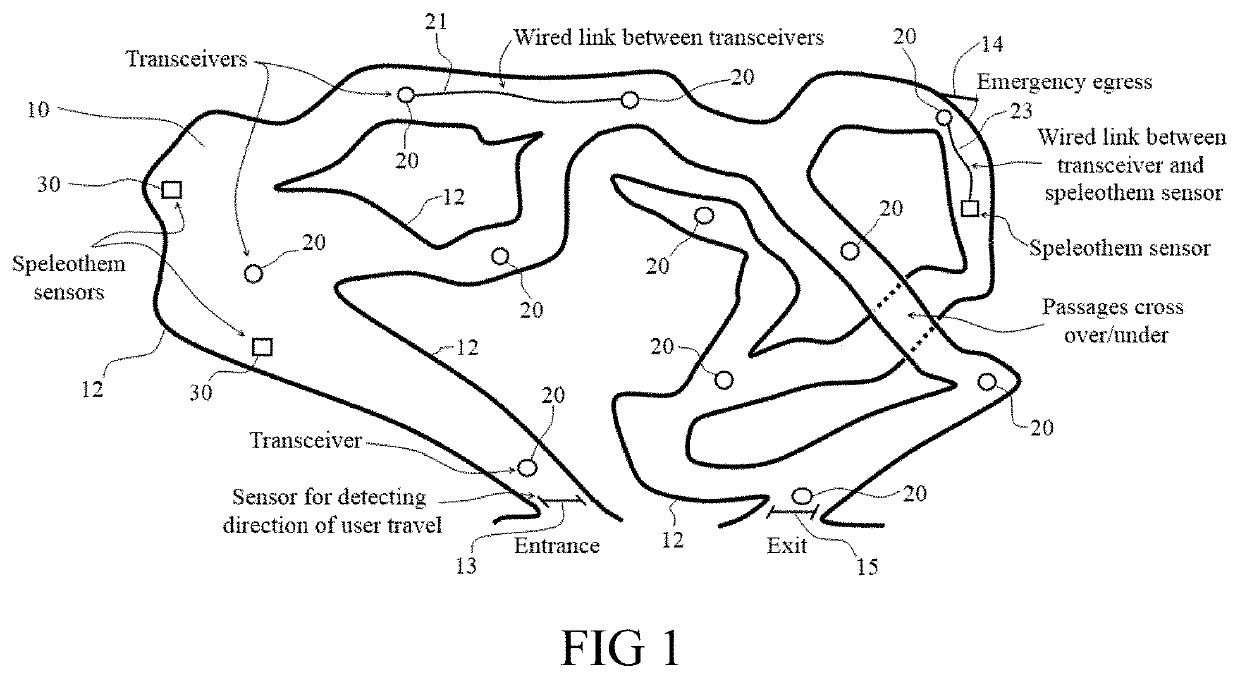User identification and tracking system for artificial cave obstacle course
a tracking system and user identification technology, applied in the field of user identification and tracking system for artificial cave obstacle course, can solve the problems of user damage, no provisions for determining the location of each user, etc., and achieve the effect of reducing electrical power consumption
- Summary
- Abstract
- Description
- Claims
- Application Information
AI Technical Summary
Benefits of technology
Problems solved by technology
Method used
Image
Examples
Embodiment Construction
[0050]Electronic transceivers 20 (see, e.g., FIG. 1) are placed throughout an artificial cave obstacle course or passage 10 fashioned of hollow, three-dimensional shapes 12, such as, but not limited to, rectangular and triangular prisms and cylinders, connected to form the passage 10 through which one or more humans (“users”) can move, either with or without various types of equipment. As in U.S. Pat. No. 8,574,085, at least the interior of passage 10 is preferably constructed and otherwise made to resemble a natural subterranean cave environment. As in most natural caves, the construction of passage 10 is typically such as to require users to crawl through at least some portions of the passage in order to traverse (pass through) the passage.
[0051]The multiple electronic transceivers 20 in the course 10 (hereafter “fixed transceivers”) preferably communicate wirelessly with additional electronic transceivers 50 (see, e.g., FIG. 2) worn by the human users of the course (hereafter “we...
PUM
 Login to View More
Login to View More Abstract
Description
Claims
Application Information
 Login to View More
Login to View More - R&D
- Intellectual Property
- Life Sciences
- Materials
- Tech Scout
- Unparalleled Data Quality
- Higher Quality Content
- 60% Fewer Hallucinations
Browse by: Latest US Patents, China's latest patents, Technical Efficacy Thesaurus, Application Domain, Technology Topic, Popular Technical Reports.
© 2025 PatSnap. All rights reserved.Legal|Privacy policy|Modern Slavery Act Transparency Statement|Sitemap|About US| Contact US: help@patsnap.com



